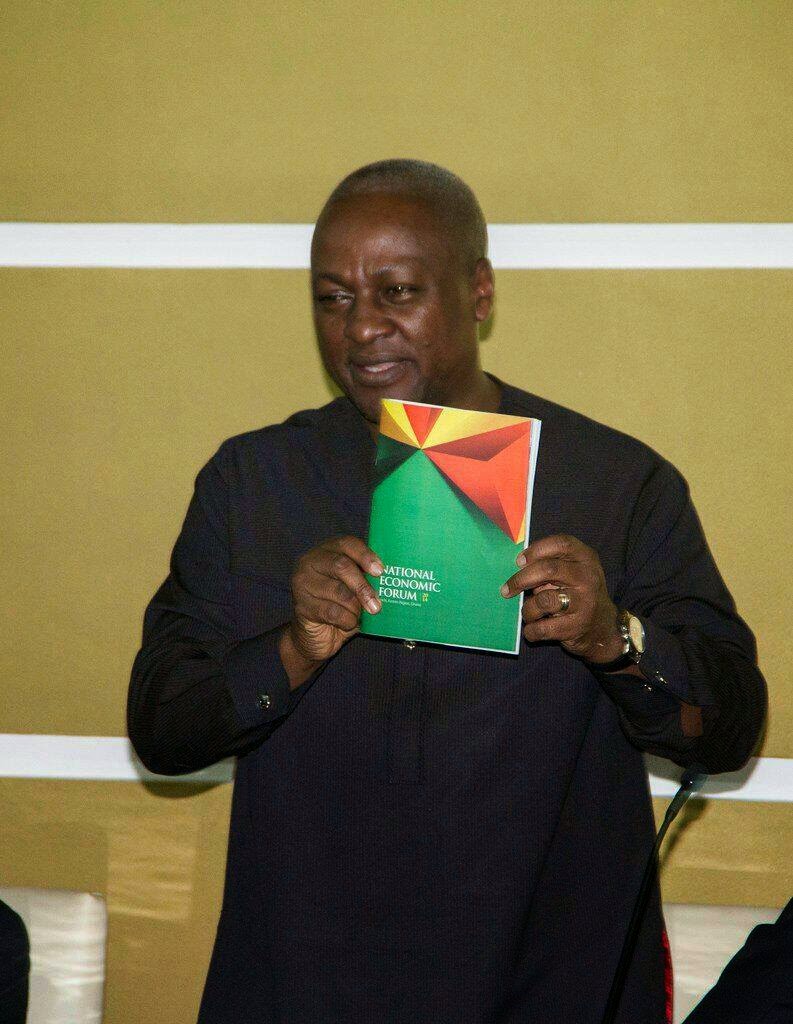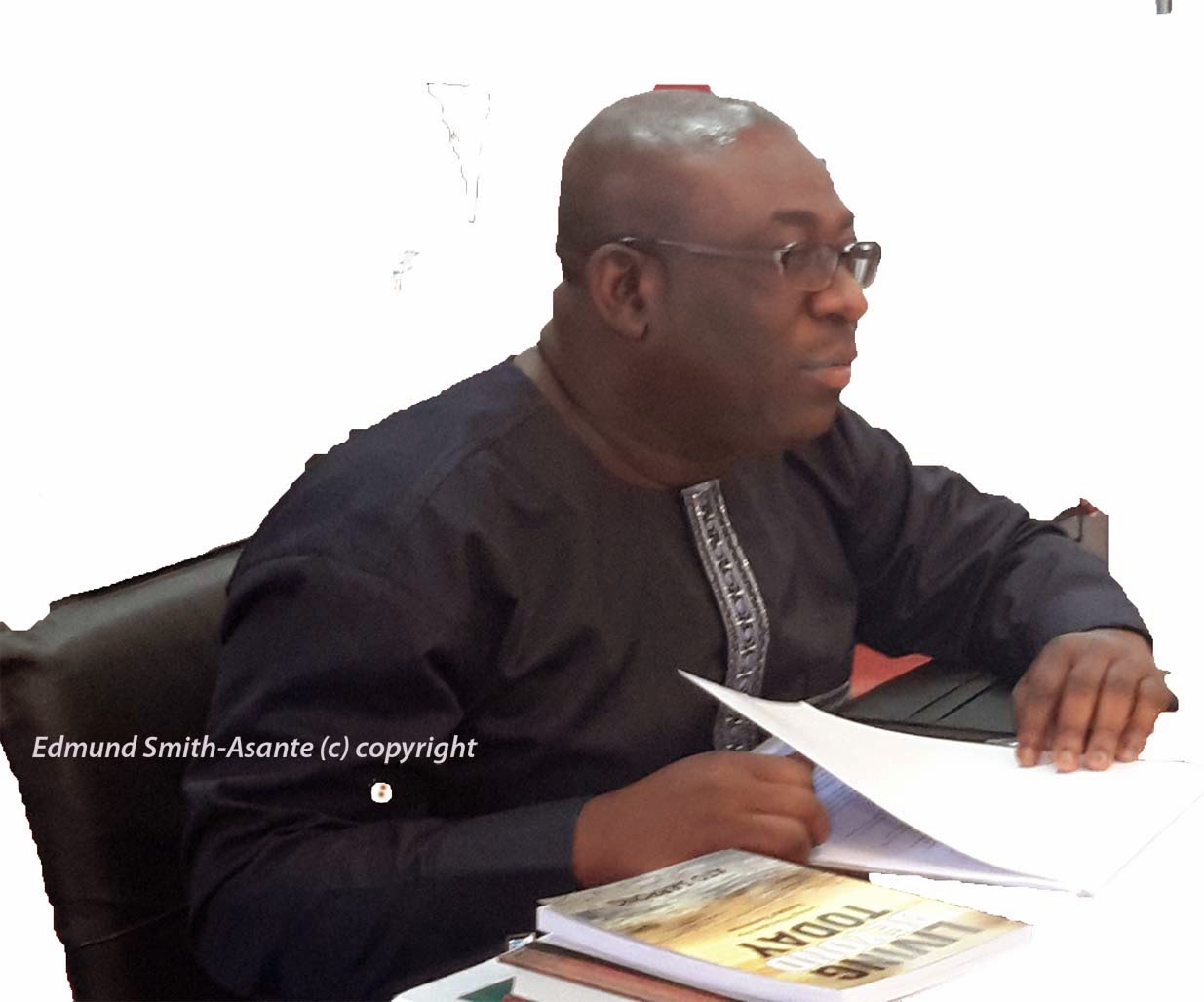Engage political parties on Senchi decisions — Report
By Edmund Smith-Asante
 |
| President John Mahama launching the report |
In order to firm up the decisions and recommendations of the National Economic Forum held in Senchi from May 13 to 15 this year, the government has been urged to find ways to meet with political parties and major stakeholders who were not part of the forum.
The sixth group formed at the forum, which looked at the post-forum implementation and communication, believes this would ensure that all sectors of the economy are brought on board to fine-tune the decisions taken before their implementation.
“The government, in all post-forum processes, should continue to explore ways of engaging the major opposition party and all other relevant stakeholders that did not participate in the forum,” the sixth group recommends in the forum’s final report submitted to President John Dramani Mahama last Wednesday.
The 14-member group, which included the Mr P.V. Obeng of the National Development Planning Commission (NDPC) (now deceased), and Dr Emmanuel Akwetey, Institute of Democratic Governance (IDEG), also proposed the holding of a meeting with a smaller group of political leaders and other non-political key stakeholders to validate the decisions and recommendations of the forum.
The group further urged the government to consider building a similar consensus around other issues of national importance, especially with respect to political governance, which should initiate a process of involving citizens whose experience, insights and expertise could enhance economic policy management and national governance.
Implementation advisory group
It also called for the establishment of an institutional framework for managing the post-forum processes by forming an implementation advisory group (IAG).
“The membership of the group should include the Ministry of Finance, NDPC and Bank of Ghana, as representatives of the state, and representation from the various constituencies represented at the forum such as the TUC, faith-based groups, the private sector (PEF/AGI), think tanks, civil society organisations (CSOs), media, academia, political parties, traditional authorities, financial institutions, professional bodies and co-opted members as and when necessary,” the group proposed.
Among other duties, the group said the IAG would be expected to oversee the translation of the decisions of the forum into an actionable work programme and have a secretariat hosted by NDPC with an independent budget but leaning on the socio-economic database, knowledge and skills of NDPC.
It would also be required to feed the decisions of the forum into the current medium-term development policy framework, which should be reflected in the next economic policy statement and the budget. It would also be mandated to monitor and report on progress of implementation to stakeholders and the general public.
Annual event
The group proposed that the National Economic Forum should be modelled along the lines of the World Economic Forum and held as an annual event.
“Holding it annually will enable stakeholders to deliberate on progress and implementation challenges and continuously engage the wider public on the national economic management dialogue and processes,” it said.
The group agreed that the annual fora must attract the best of minds, experiences, influences and competences of Ghanaians, both at home and abroad, and should be convened by the President through the NDPC, and rotated it across the 10 regions of Ghana.
Writer’s email: Edmund.Asante@graphic.com.gh
This story was first published by the Daily Graphic on July 26, 2014
This story was first published by the Daily Graphic on July 26, 2014



Comments
Post a Comment